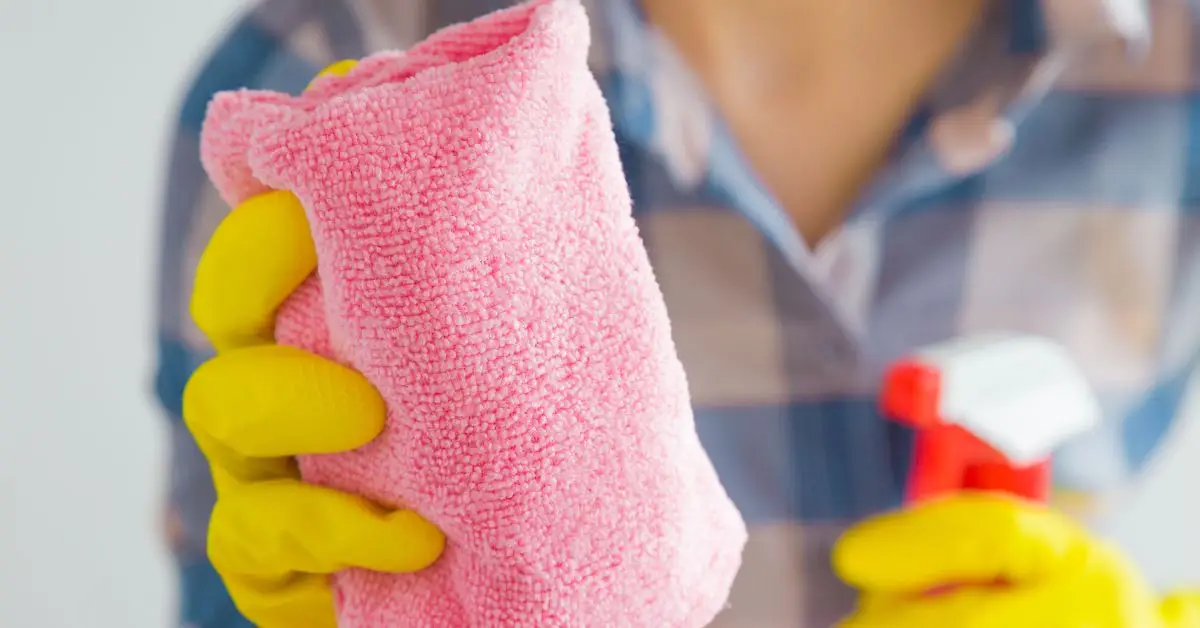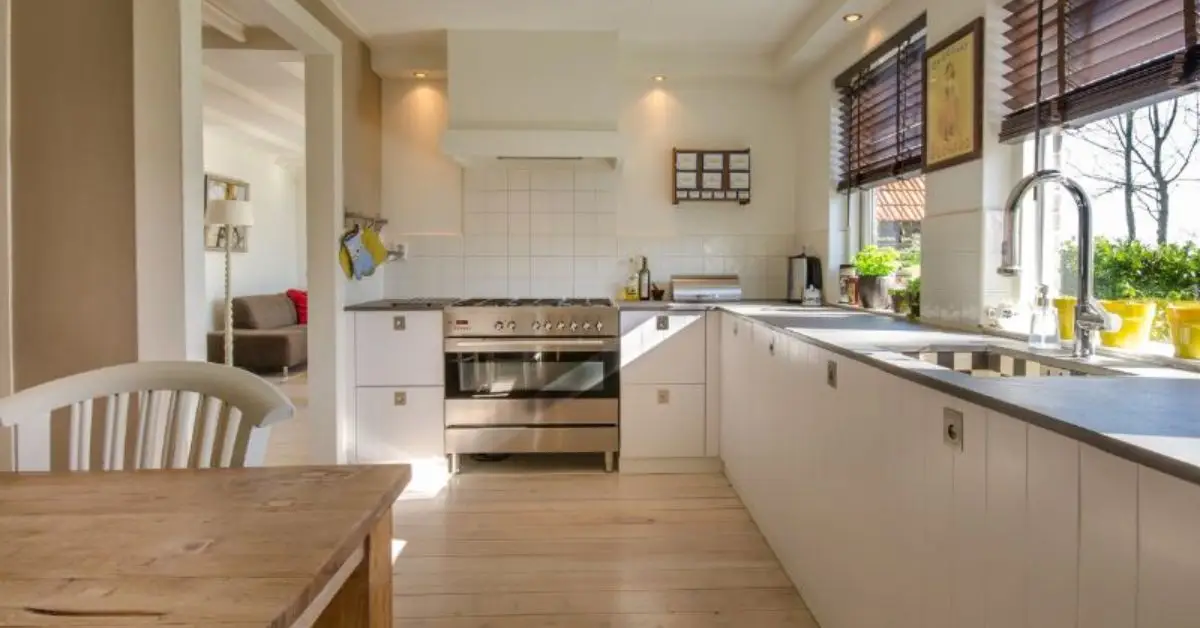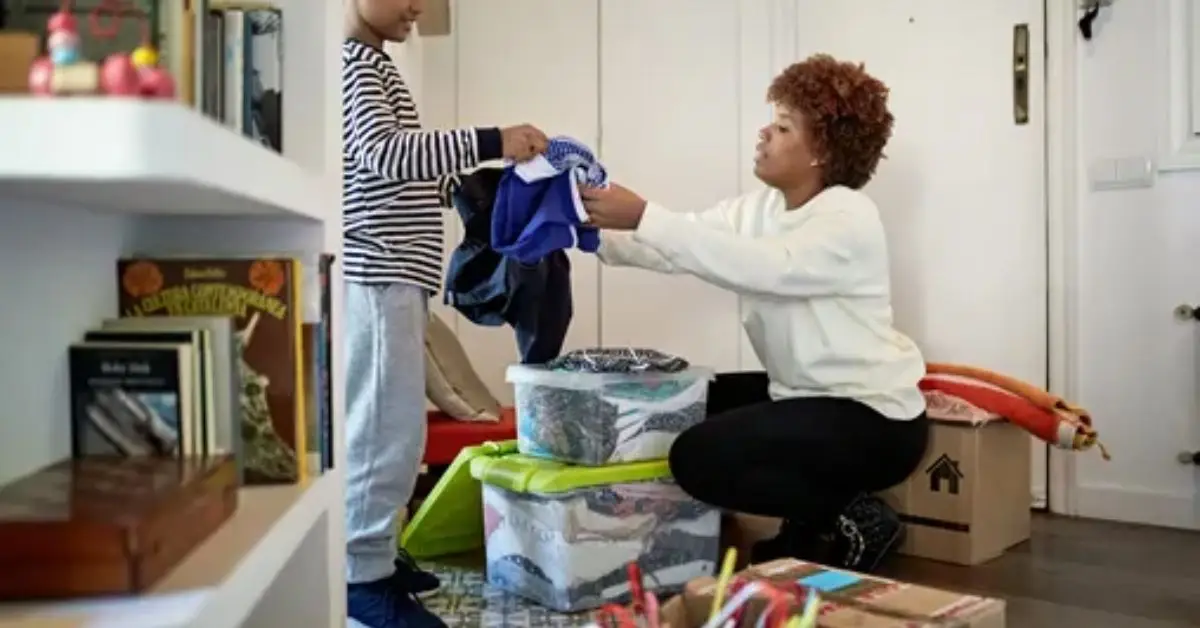7 Small Habits That Make a Big Difference in a Clean Home
Let’s be real — some people just always have clean homes. You walk in, and everything feels calm. No dishes in the sink, no clutter on the counters, not even a rogue sock under the couch. It’s not about having a housekeeper or being a clean freak. It’s about habits.
Most of us weren’t raised with systems that actually work in real life — especially when you’re tired, busy, or overwhelmed. And when cleaning always feels like a big, annoying task, it’s easy to put it off until it turns into chaos.
But the people who keep their homes clean? They don’t wait until things get messy. They’ve built small habits into their day that quietly keep things under control — without constantly thinking about it.
In this article, I’ll walk you through 7 simple things those people do — and how you can start doing them too. These aren’t fluffy tips or Pinterest-perfect routines. They’re real-world habits for real people. You don’t need more motivation — you need a few things that actually work without burning you out.
So let’s get into it.
1. They Clean As They Go — Not Later
This one habit changes everything. People with clean homes don’t wait for messes to pile up — they deal with them in the moment. If they spill something, they wipe it. If they finish dinner, the dishes go straight into the dishwasher. No “I’ll do it later.” No mental negotiation.
It sounds small, but this habit quietly eliminates 80% of the mess before it ever becomes a problem. The sink stays clear. Counters stay usable. Nothing builds up into that overwhelming “where do I even start” feeling.
And no, it’s not about perfection. It’s about momentum. When you get used to doing small tasks immediately, your home stops turning into a weekend-long recovery project.
As noted by Real Simple, clean-as-you-go routines are a defining habit of people who keep their homes effortlessly tidy — especially those juggling full schedules or families. It’s not just practical; it’s preventative.
Here’s how to make it doable:
- Don’t aim to clean the whole kitchen. Just rinse the plate now.
- Toss clothes in the hamper as soon as you take them off.
- Wipe the bathroom counter after brushing your teeth.
It’s not extra work — it’s shifting when you do the work. And over time, it saves you hours.
Try it for just one day: act like “later” doesn’t exist. You’ll be shocked at how little cleaning you actually have to do.
What’s one task you keep postponing that ends up becoming a bigger mess later? Start by catching that one in the moment.
2. They Never Let Clutter Get Comfortable
One of the most underrated habits of people with consistently clean homes? They don’t let random stuff “rest” on surfaces. Mail doesn’t sit on the counter for days. Shoes don’t live by the doorway. That one delivery box isn’t still hanging around next week.

Clutter starts small — a receipt, a pair of sunglasses, an Amazon return — but the moment you let it sit, it becomes part of the background. If you’re struggling to reset cluttered spaces without spending hours, these room-by-room decluttering hacks can help you take fast, focused action — even in just 10 minutes. People with clean homes treat clutter like a temporary visitor, not a long-term guest.
It’s not about minimalism. It’s about friction. The more stuff you leave out, the harder it is to clean around it — and the more overwhelming it feels to start.
Here’s how to build the habit:
- Do a 3-minute surface reset before bed. No deep cleaning — just visual clarity.
- Create a “drop zone” for stuff you genuinely don’t have time to deal with yet — but limit it to one basket or tray.
- Don’t bring in new items unless you have a spot for them.
Clutter doesn’t have to be a problem — if it’s not allowed to linger.
What’s one surface in your home that always attracts clutter? Start with that one. Declutter it fully, then protect it like it’s prime real estate.
3. They Stick to Micro-Cleaning, Not Marathon Cleaning
People with clean homes rarely do those all-day deep cleans you see on Instagram. Why? Because they don’t need to. Instead of letting mess build up, they work in micro-bursts — a few minutes here and there that keep everything running smoothly.

This isn’t about discipline. It’s about not waiting until things are unbearable. Wipe down the bathroom mirror while brushing your teeth. Vacuum just the hallway after dinner. Quick passes that make mess feel manageable.
This approach removes guilt, stress, and the constant mental load of “I need to clean but I don’t have time.”
As Southern Living points out, the cleanest homes usually belong to people who’ve mastered the art of doing small things often — not big things occasionally. It’s not about being obsessive; it’s about being consistent.
Try these micro-cleaning moments:
- One drawer or shelf a day instead of the whole closet
- Wipe the sink while your coffee brews
- Do one load of laundry daily instead of a full weekend pile-up
The secret isn’t working harder — it’s shrinking the task so small that it becomes almost automatic.
What’s one cleaning task you avoid because it feels “too big”? Break it into 2-minute chunks and start there.
4. They Don’t Rely on Motivation — They Rely on Systems
Motivation is unreliable. People with clean homes know this — and they don’t depend on it. Instead, they set up simple systems that make cleaning automatic, even on the days they don’t feel like it.
It might be a 15-minute reset after dinner, a weekly Sunday reset, or a small routine tied to something they already do — like wiping down counters right after morning coffee. These systems reduce decision fatigue. You don’t have to think. You just follow the rhythm.
The power is in predictability. When cleaning becomes part of your environment, it stops feeling like effort.
Here’s how to build your own system:
- Attach a small task to an existing habit (e.g., tidy while your food’s in the microwave)
- Use recurring calendar reminders if you forget
- Involve others — shared systems prevent resentment
If your current approach to cleaning depends on you “feeling in the mood,” it’s not sustainable. Start with just one trigger-based habit — and let that anchor the rest.
What’s one daily habit you already have where you can sneak in a 1-minute cleaning task?
5. They Make Their Homes Easy to Maintain — Not Just Pretty
Clean homes aren’t always about how they look — they’re about how they work. The people who seem effortlessly tidy don’t just organize once and hope for the best. They set up their space so it naturally stays under control.

That means choosing low-effort solutions: closed storage over open shelves, easy-to-wipe surfaces, donation bins that are always accessible, and clear zones for everything — especially the things that tend to pile up.
It’s not about aesthetic perfection. It’s about designing your space to help you succeed. Whether you’re settling into a new space or upgrading your current one, these home maintenance musts will keep things functioning smoothly behind the scenes — so mess doesn’t sneak up on you.
Ideas to make your space more maintenance-friendly:
- Keep a donation bag in your closet so unused clothes don’t pile up
- Use trays or bins to visually contain mess
- Store cleaning wipes in the bathroom for quick resets
The best homes aren’t just clean — they stay clean without exhausting the people who live in them. That’s the goal.
Look around your space: what’s one thing that constantly gets messy? How can you redesign that area to make it easier, not harder?
6. They Have a “Reset” Routine — Not a Cleaning Spree
People with consistently clean homes don’t wait for things to spiral. Instead, they build in simple reset moments — daily or weekly — that bring the space back to zero. These aren’t deep cleans. They’re fast, repeatable check-ins that stop chaos before it builds.
Think of it like brushing your teeth. You don’t wait until your teeth feel dirty — you do it every day so they don’t get that way in the first place.
Your home works the same way.
Whether it’s a 10-minute evening tidy or a Sunday morning floor sweep, resets give structure to the week. They bring a sense of control and rhythm — even when life feels messy.
Ways to create your own reset routine:
- Evening reset: clear kitchen counters, fluff the couch, toss laundry in the basket
- Weekly reset: floors, trash, mirrors, bathroom wipe-down
- Visual reset: make the bed, open curtains, light a candle — it signals “fresh start”
These small resets don’t just clean your space — they clear your head.
What time of day naturally works for you to hit reset? Morning? After work? Start small, but protect that time like it matters — because it does.
7. They Declutter Regularly — Even When Nothing Looks “Messy”
People with truly clean homes don’t wait until drawers are overflowing or closets are jammed shut. They declutter before things become a problem. That’s the real secret: editing in small, regular doses.

This doesn’t mean they’re always purging or obsessed with minimalism. It just means they’re honest with themselves about what they actually use — and they don’t keep things “just in case” if those things are stealing space or peace of mind.
Decluttering isn’t an event. It’s a mindset.
Good Housekeeping highlights that clutter is one of the biggest factors in homes feeling dirty — even when they’re technically clean. Too much stuff makes cleaning harder, mess feel worse, and stress creep in. Got a storage zone that silently fills with “someday” stuff? Try these genius attic decluttering strategies that make even the most ignored spaces easier to manage.
Here’s how to keep it simple:
- One in, one out: buy something, donate something
- Monthly sweep: one drawer, shelf, or bin at a time
- Keep a donation box nearby — always ready to catch what you no longer need
Decluttering doesn’t have to be emotional or dramatic. It’s just routine maintenance for your home — and your mind.
Ask yourself: what’s the one area in your home that’s full of “I’ll deal with it later” stuff? Start there. You’ll feel the difference in minutes.
What It All Comes Down To
If your home never quite feels “under control,” it’s not because you’re lazy or messy — it’s because no one taught you the right systems.
People with clean homes aren’t superhuman. They’ve just built quiet, consistent habits that make a huge difference over time. Most of them don’t even think about it anymore — it’s just how they live.
And the good news? You don’t have to overhaul your life to get there. You just have to start noticing how your space works — and shift one or two habits at a time.
Cleaning as you go. Catching clutter early. Making resets part of your rhythm. These are small changes — but they ripple outward. You’ll feel it every time you walk into your space and don’t feel overwhelmed.
So here’s the question:
Which one of these habits do you want to try first — and what’s stopping you?
Tell me in the comments. I’d love to hear how your home feels once you shift even one of these.
Want more smart, doable habits for a cleaner home? Visit Build Like New for tips that actually work — without the overwhelm.
Disclaimer: This article is for informational purposes only and does not replace professional cleaning or organizational advice. Always choose methods that work best for your home and lifestyle.


